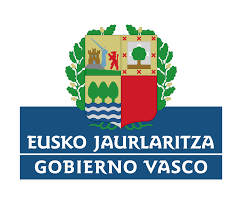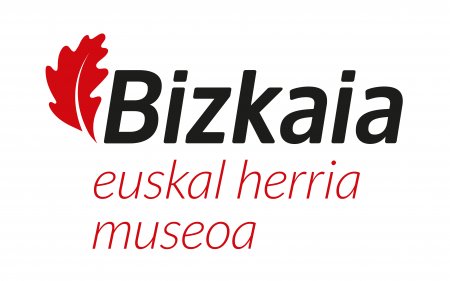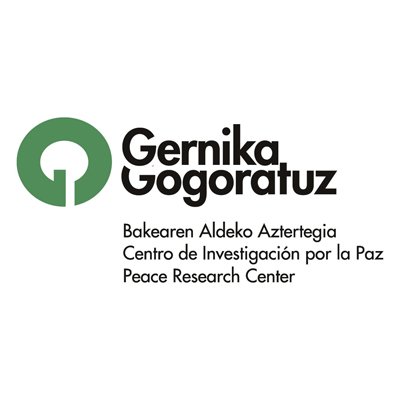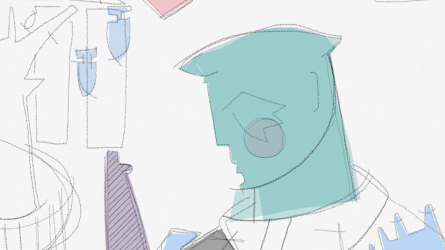
Gernika(k) / Guernica(s) International Congress: Resemanticisations of a historical trauma
Description
The consolidated research group MHLI (IT1579-22) of the University of the Basque Country/Euskal Herriko Unibertsitatea is pleased to announce the celebration of the International Congress Gernika(k)/Guernica(s). Resemanticisations of a historical trauma, which will take place on 13 and 14 June 2024. The aim will be to reflect on the cultural representations of the bombing of the Biscayan town, as well as the remediations that Pablo Picasso's well-known painting has known.
The list of plenary speakers is a clear reflection of the multidisciplinary approach chosen for our International Congress. The conference will be attended by specialists in political and historical studies such as Prof. Dr. Stefanie Schüler-Springorum (Technische Universität Berlin); the historian and director of the Center for Basque Studies at the University of Nevada, Xabier Irujo Ametzaga; experts in contemporary Basque literature such as Maria Jose Olaziregi Alustiza (UPV/EHU, Director of the MHLI Research Group), professionals in Art History, Cultural Studies and curatorship such as Jorge Luís Marzo (BAU, Centre Universitari de Disseny) and art historian and member of the MNCARS project “Repensar Guernica” Rocío Robles Tardío (Universidad Complutense de Madrid). Along with these scholars, the MHLI External Partners Dolores Vilavedra (Universidad de Santiago de Compostela), Maitane Ostolaza (Université de Perpignan), Iker González-Allende (University of Nebraska), Estibalitz Ezkerra (University of Colorado) and María Oianguren (Gernika Gogoratuz) complete the constellation of experts invited to this event.
This selection of key speakers encourages an exchange between the future participants as rich and diverse in their approaches, methodologies and disciplines as that reflected in the proposed plenary lectures themselves. Gernika, as an event and as a memorial space, “insists and survives”, as Santner would have said; it reverberates and vibrates, endowed with “multiple lives”, as Roberto Calasso might have told us. It is endowed both the event and the artistic device, ultimately, with a kind of afterlife alla Warburg that seems to be a multiple, iconographic, artistic, memorial and political survival, which demands and underpins the meeting between experts and specialists from multiple disciplines such as the one here promoted.
The International Congress will be completed with a series of guided tours through the places of conflict and memory with the participation of the Gernika Peace Museum. This institution will host a temporary exhibition during the same dates, curated by the team of specialists from the MHLI, and following an equivalent thematic in strict dialogue with the congress itself.
We invite interested parties to submit and participate with their paper proposals for this ambitious academic exchange around the following thematic axes:
1: Gernika as lieux de mémoire. The relevance of places of memory such as the Biscayan town acquires importance in the present time and demands, under the constant threat of the Zeitgeist of anti-memory, alternative facts and liquid truth, an academic review and an exchange between specialists from all disciplines. This thematic axis will focus on Gernika as a space for the gestation of memory(s) or as the origin of contested memories or competing memories. In such context, we foster eventual approaches that might analyse Gernika as a space with the capacity to remember and to remember itself; as a Mahnung, as warning or admonition, specifically, not only as a living memory that spreads its trauma in the collective memory, but also as a warning of similar events to come.
2: Gernika, political significance. In this case, we welcome proposals that focus specifically on the transcendence of the traumatic event beyond its symbolic importance and its repercussions in the very temporal space in which it took place during the Civil War. Gernika shall be approached, in such context, as Tatort ("place of crime", in this case, cultural homicide and collective homicide) which has also been a space for the gestation of the political, a locus that has generated a whole series of narratives –political, identity-based– that far transcend the conflict of the Spanish Civil War.
3: Gernika as an artistic device. This thematic area aims to accommodate and address any reflection in dialogue with disciplines such as Art History, Cultural Studies, the history of images and iconography, focusing not on the political event or on the physical or symbolic memorial space, but on Picasso's work and its international repercussions. Analysing its validity and survival as an artefact capable of evoking a narrative and an anti-war discourse in constant change, capable of adapting indefinitely, of continually developing.
4: The resemanticisations of Gernika. Deeply related with the previous thematic area: we particularly encourage proposals around Picasso's Guernica on the basis of its survivals, reflecting on the capacity of the artistic device to become an icon, to reappear, to reverberate and vibrate, at other moments, in further spaces; in dissimilar places marked by conflict or by social, political, civic, cultural or identity claims.
5: The other Gernika(s). Any approach that proposes a strictly comparative study. In this case, proposals which focus on the territorial scope of the Basque Country –Otxandio, Durango– as well as others which transcend temporally or geographically the specific context of military operations, punishment or state terrorism in or on Basque territory during the Civil War.
6: Beyond Gernika: vibrations in the Iberian Peninsula. This thematic axis aims to host different types of proposals –mainly, but not exclusively, related with literature and Memory Studies– that reflect on the vibrating capacities of Gernika and following Calasso’s inspiring asseverations, its possibilities of “reverberation and reappearance”, living “other lives” in territories and literary spaces beyond the Basque sphere. We particularly welcome case studies focusing on the presence of the traumatic memory of Gernika, understood here as an activating device of memories and counter-memories in other Iberian literatures.
7: Gernika(s) in Education: we particularly welcome contributions addressing the relevance of education and didactics in the transmission of memory and the construction of democratic societies. Case studies focused on innovative educational proposals analysing entanglements between memory and art will be particularly welcome.
Objectives
The aim will be to reflect on the cultural representations of the bombing of the Biscayan town, as well as the remediations that Pablo Picasso's well-known painting has known. The list of plenary speakers encourages an exchange between the future participants as rich and diverse in their approaches, methodologies and disciplines as that reflected in the proposed plenary lectures themselves. A selection of the submitted papers is planned to be published in a reputable publishing house (SPI, Q1).
Proposals and deadlines for submission of papers
- Paper proposals (title and abstract of about 250 words, including a reference to the thematic axis where the proposal would take place), written in Basque, Spanish (in both circumstances an English version shall be added) or English (in such case the translation to Spanish or Basque should be included) will be sent will be sent together with a brief bibliographic note (10 lines maximum) before 29 February 2024 (proposal form: https://acortar.link/U5D6TE), via provided platform on the conference website (application form: https://n9.cl/xkyg5).
- After evaluation by the organising committee, the congress management will communicate their acceptance by 15 March 2024.
- The ponency (15 minutes long) will be carried out in Basque, Spanish or English; there will be no simultaneous translation, so the visual resources (PPT) must be projected in one of the two languages not used for the presentation.
Publication
- A selection of the submitted papers (ponency in written version) is planned to be published in a reputable publishing house (SPI, Q1).
- The deadline for submission of papers for publication is 02/09/2024.
- For their possible publication, the revised versions of the papers must comply with the editorial rules that will soon be available on the congress website (https://mhli.net/gernika/).
- Proposals should be sent, in the format indicated on the congress website, to the following adresses: miguel.venegas@ehu.eus and ana.gandara@ehu.eus.
Registration dates
- Registration for speakers: 15/03/2024-20/05/2024
- Registration for attendees: 01/12/2023-20/05/2024
Key dates
- 01/12/2023: registration opening as an attendee.
- 29/02/2024: extended deadline for submission of paper proposals.
- 15/03/2024: confirmation of acceptance of paper.
- 15/03/2024: registration opening as a speaker.
- 29/04/2024: deadline for the Early Bird registration fees.
- 20/05/2024: deadline for registration as an attendee.
- 02/09/2024: deadline for submission of an article for its potential publication.
Organizing Committee
- Ana Gandara Sorarrain (MHLI. UPV/EHU)
- Mari Jose Olaziregi (UPV/EHU)
- Miguel Rivas (UPV/EHU)
Scientific Committee
- Jesús Alonso Regalado (City University of New York)
- Gorka Mercero Altzugarai (University of Liverpool)
- Iratxe Momoitio Astorkia (Fundación Museo de la Paz de Gernika)
- Francesc Montero Aulet (Universitat de Girona)
- Joan Oleza Simó (Universitat de Vàlencia)
- Xavier Pla i Barbero (Universitat de Girona)
- Joan Ramon Resina (Stanford University)
- Jacqueline Urla (University of Massachusetts, Amherst)
- Ulrich Winter (Philipps Universität Marburg)
Executive Committee
- Izaro Arroita Azkarate (Euskal Herriko Unibertsitatea, UPV/EHU; MHLI)
- Mikel Ayerbe Sudupe (Euskal Herriko Unibertsitatea, UPV/EHU; MHLI)
- Amaia Elizalde Estenaga (Euskal Herriko Unibertsitatea, UPV/EHU; MHLI)
- Miren Ibarluzea Santisteban (Euskal Herriko Unibertsitatea, UPV/EHU; MHLI)
- Garbiñe Iztueta Goizueta (Euskal Herriko Unibertsitatea, UPV/EHU; MHLI)
- Andere Larrinaga Cuadra (Euskal Herriko Unibertsitatea, UPV/EHU; MHLI)
- Ismael Manterola Ispizua (Euskal Herriko Unibertsitatea, UPV/EHU; MHLI)
- Pio Perez Aldasoro (Euskal Herriko Unibertsitatea, UPV/EHU; MHLI)
- Mikel Onandia Garate (Euskal Herriko Unibertsitatea, UPV/EHU; MHLI)
- Beñat Sarasola Santamaria (Euskal Herriko Unibertsitatea, UPV/EHU; MHLI)
Technical secretary
- Nerea Eizagirre Telleria (Euskal Herriko Unibertsitatea, UPV/EHU; MHLI)
- Maialen Fernandez Martinez (Euskal Herriko Unibertsitatea, UPV/EHU; MHLI)
- Nagore Fernandez Zabala (Euskal Herriko Unibertsitatea, UPV/EHU; MHLI)
- Leire Iruretagoiena Goikoetxea (Euskal Herriko Unibertsitatea, UPV/EHU; MHLI)
- Ainhoa Urzelai Vicente (Euskal Herriko Unibertsitatea, UPV/EHU; MHLI)
- Ane Miren Villagran Arrastoa (Euskal Herriko Unibertsitatea, UPV/EHU; MHLI)
Venue
The lectures and paper-presentations will take place at the Elai Alai Center and the Euskal Herria Museum, both located in Gernika-Lumo, on the days and schedule specified in the Program.
The three exhibitions that can be visited during the congress will be on display at the Gernika Peace Museum , the Euskal Herria Museum and the Elai Alai Center (see final schedule).
The Casa de Juntas in Gernika-Gernikako Batzar Etxea will host the closing ceremony of the congress, which will also include a guided tour and a conference.
Activity directed to
- All public
- University student
- Students not from university
- Teachers
- Professionals
Organised by
In collaboration with
Directors

Ana Gandara Sorarrain
MHLI. UPV/EHU
(Sunbilla, 1986) Euskal Filologian Lizentziatua eta Literatura Konparatua eta Literatura Ikasketetan doktorea (EHU, 2015). Irakasle Atxikia da EHUko Hezkuntza, Filosofia eta Antropologia Fakultatean. Elkarlanean aritu da Deustuko Unibertsitatearekin eta baita Mondragon Unibertsitatearekin ere. Materiarik gabeko ondare kulturalari eta baliabide sinbolikoei buruz aritu da ikertzen. Bertzeak bertze, Mikel Laboa Katedrarekin aritu da, Mikel Laboari buruzko bibliografia nagusia bildu, bere aritua gune duen monografia gauzatu eta, 2014an, doktorego aurreko beka jaso zuen. 1960-1990 bitarteko euskal kulturaren birmoldatzeari buruzko tesia defendatu zuen, 2015ean (“Euskal ondare kulturalaren moldatzea (1960-1990) egungo Euskal Kultur Sistemaren oinarri. Baliabide eta forma sinbolikoak”). Espresuki ardaztua da literaturan eta komunitateen ondare kultural metatuaren azterketan. Memoria Historikoa Literatra Iberiarretan (IT 1046-16) ikertalde kontsolidatuko partaidea da.
Mari Jose Olaziregi holds a PhD in Basque literature. She is a Full Professor at the University of the Basque Country (Spain), and between 2007-2009 Assistant Professor at the Center for Basque Studies (University of Nevada, Reno), and Visiting Professor at universities like the University of Konstanz, the University of Chicago or the City University of New York. She holds a MA in Studies in Fiction at the University of East Anglia (UK). She specializes in contemporary Basque and Iberian literature, Comparative Literature, Basque Cultural and Gender Studies, and Memory Studies. She is the author of 11 books on Basque literature, 92 book-chapters, 18 edited books, and 81 articles in international journals. Mari Jose Olaziregi is a correspondent member of the Royal Academy of the Basque Language, and between 2010-2016, the Director of the Language and Universities Area at Etxepare Basque Institute. Lastly, she is a member of different international research-groups or networks, such as, the Groups “Celt”, “Liter21” and “Lijmi” (University of Santiago de Compostela, Spain; 2006-), or the Research Network “Memory and Narration” (University of Aarhus). Since 2012, she coordinates the MHLI Research Group.
Speakers

Iker Gonzalez Allende
Iker González-Allende is Leland J. and Dorothy H. Olson Professor of Modern Languages and Literatures, and Professor of Hispanic Studies at the University of Nebraska-Lincoln. He specializes in the Spanish Civil War, exile and migration, Basque studies, gender and queer studies, and autobiographical writing. He has published seven books: the monographs Hombres en movimiento: Masculinidades españolas en los exilios y emigraciones, 1939-1999 (Purdue University Press, 2018) and Líneas de fuego: Género y nación en la narrativa española durante la Guerra Civil (1936-1939) (Biblioteca Nueva, 2011); a critical edition of the novel Euzkadi en llamas, by Ramón Belaustegigoitia (Txalaparta, 2020); the edited volumes El mundo está en todas partes: La creación literaria de Bernardo Atxaga (coedited with José Ángel Ascunce Arrieta, Anthropos, 2018) and El exilio vasco: Estudios en homenaje al profesor José Ángel Ascunce Arrieta (Universidad de Deusto, 2016); and the editions of Pilar de Zubiaurre’s works, titled Evocaciones: Artículos y diario (1909-1958) (Saturrarán, 2009) and Epistolario de Pilar de Zubiaurre (1906-1970) (Tamesis, 2014). He has also published more than 60 articles in books and academic journals.

Xabier Irujo Ametzaga
University of Nevada, Reno
Born in exile in Caracas, Venezuela, in 1967, Xabier Irujo is the director of the Center for Basque Studies at the University of Nevada, where he is professor of Genocide Studies. He was the first guest research scholar of the Manuel Irujo Chair at the University of Liverpool and has taught seminars on cultural genocide at Boise State University and at the University of California. He holds three master’s degrees in linguistics, history and philosophy and has two Ph.D.'s in history and philosophy. Irujo has lectured in nearly 100 American and European universities and academic or cultural institutions. He has published on issues related to Basque history and politics and has specialized in genocide studies with a focus on physical and cultural extermination. He is the member of the editorial board of six academic presses in Europe and the Americas. Irujo has authored more than 15 books and a number of articles and has received awards and honors at national and international level. His recent books include Gernika: Genealogy of a Lie (Sussex, 2019), The Bombing of Gernika (Center for Basque Studies Press, 2018), Gernika. 26 de abril de 1937 (Crítica, 2017) and Legal History of the Basque Language (HAEE, 2015).

Raquel Macciuci
Universidad Nacional de La Plata
Raquel Macciuci es catedrática de Literatura Española II en la Universidad Nacional de La Plata (Argentina) e investigadora del Centro de Teoría y Crítica Literaria de la UNLP. Es especialista en historia, memoria y exilio en la literatura española, y en los diálogos transatlánticos establecidos entre España y Argentina. Ha dirigido publicaciones como Entre la memoria propia y la ajena. Tendencias y debates en la narrativa española actual (2010), La Plata lee a España. Literatura, cultura, memoria (2009), Final de plata amargo. De la vanguardia al exilio. Ramón Gómez de la Serna, Francisco Ayala y Rafael Alberti (2006). Ha presidido numerosos congresos de prestigio internacional y ha dirigido proyectos de investigación subvencionados por diferentes organismos argentinos.

Jorge Luís Marzo Perez
Jorge Luis Marzo (Barcelona, 1964) is an art historian, PhD in Cultural Studies, exhibition curator, audiovisual producer, lecturer at BAU (Art and Design University Centre of Barcelona) and member of GREDITS (a research group focused on exploring the potential of art and design as tools for social transformation). His professional work has taken him, in addition to Spain, to Mexico, the United States, Canada, Colombia, Ecuador, Italy and Chile. He has developed numerous collaborative research projects, in exhibition, audiovisual or editorial formats, often in relation to the politics of the image. Among the latter, the following are worth mentioning: La curva. Patologías gráficas (ICUB, Cátedra 2021-2024); Biennal 2064 (Bòlit, Virreina, CCCC, 2022-2023); Actuar en la emergència (RAER, 2021-2024); Las videntes. Images in the Age of Prediction (Arcàdia, 2021); Fantasma'77. Iconoclastia española (Tecla Sala, CCCC, UK, Solleric, 2020-2021); Iconografía post-millennial (Morsa, 2019); After Post-Truth (Artnodes, 2019); La competencia de lo falso. Una historia del fake (Cátedra, 2018); Espectros (Virreina, 2017); Fake. No es verdad, no es mentira (IVAM, 2016); Interface Politics (BAU, 2016, 2018); Arte en España (1939-2015).
Mari Jose Olaziregi holds a PhD in Basque literature. She is a Full Professor at the University of the Basque Country (Spain), and between 2007-2009 Assistant Professor at the Center for Basque Studies (University of Nevada, Reno), and Visiting Professor at universities like the University of Konstanz, the University of Chicago or the City University of New York. She holds a MA in Studies in Fiction at the University of East Anglia (UK). She specializes in contemporary Basque and Iberian literature, Comparative Literature, Basque Cultural and Gender Studies, and Memory Studies. She is the author of 11 books on Basque literature, 92 book-chapters, 18 edited books, and 81 articles in international journals. Mari Jose Olaziregi is a correspondent member of the Royal Academy of the Basque Language, and between 2010-2016, the Director of the Language and Universities Area at Etxepare Basque Institute. Lastly, she is a member of different international research-groups or networks, such as, the Groups “Celt”, “Liter21” and “Lijmi” (University of Santiago de Compostela, Spain; 2006-), or the Research Network “Memory and Narration” (University of Aarhus). Since 2012, she coordinates the MHLI Research Group.

Maitane Ostolaza Esnal
Maitane Ostolaza Esnal is Full Professor of History and Civilisation of Contemporary Spain at the University of Perpignan (France). She holds a PhD in History and Civilisation and defended her doctoral thesis at the European University Institute in Florence (Italy) in 1999. She has worked at the University of Paris-Sorbonne for 17 years. At this university she launched the Basque Studies Programme in 2015, in collaboration with the Etxepare Institute. Her research focuses on the relationship between religion, education and modernisation, popular culture in the 19th and 20th centuries, the processes of nationalisation in Europe and, more recently, on issues related to heritage and landscape, approached from the perspective of cultural history. She has published several works, both in France and in Spain, on these subjects. Her latest publication on Basque landscape was published in London in 2023: Landscape and Identity in the Modern Basque Country, 1800 to 1936, London, Routledge, 2023.

Rocío Robles Tardío
Professor of Art History at the Complutense University of Madrid. She has also taught at the University of Castilla La Mancha; and has been academic coordinator of the Master in History of Contemporary Art and Visual Culture (UAM-UCM-MNCARS) between 2017 and 2023. Co-curated the exhibitions Un sitio para pensar. Schools and experimental art education practices in the Basque Country, 1957-1979 (Artium & Jorge Oteiza Museoa, 2022) and Encounters with the 1930s (MNCARS, 2012). Member of the team of the digital project Repensar Guernica of the MNCARS in its first phase and launch (2017). Author of several books and articles, including Informe Guernica. Sobre el lienzo de Picasso y su imagen (Asimétricas, 2019), or her collaboration on the catalogue of the Guernica exhibition (Musée national Picasso-Paris, 2018). She has also published the anthologies Picasso and His Critics I. Reception of Guernica, 1937-1947 and Picasso and His Critics II. Los años comunistas (La Central, 2012), not to mention Pintura de humo (Siruela, 2008). She has held a research grant-contract in the Department of Exhibitions of the Museo Reina Sofía (2012-2014) and is a member of the research programme of the Almine and Bernard Ruiz-Picasso Foundation, 2021-2024

Dolores Vilavedra
Universidade de Santiago de Compostela
Dolores Vilavedra (Vigo, 1963). Professor of Galician Literature at the University of Santiago de Compostela. She coordinates the area of Arts and Humanities at EDIUS. She belongs to the FILGA research group and participates in the project "Cultura impresa en lingua galega". A specialist in contemporary Galician narrative, she is a literary critic and translator. She has been director of the Anuario de estudos literarios galegos (2002-2007). She coordinated the preparation of the Diccionario da literatura galega. Other works include Historia da literatura galega (1999), Sobre narrativa galega contemporánea (2000), A narrativa galega na fin de século. Unha ollada crítica (2010), the edition of several epistolary collections of post-war writers or classic works of Galician literature. Together with the group Histagra, he organised the International Conference 1936. Un novo relato? 80 anos entre historia e memoria and co-edited the volume 1936. Un nuevo relato. After coordinating the Language and Literature Section of the Consello da Cultura Galega, since 2015 she has been a member of the Plenary of this institution; she has been Secretary of the Executive Committee (2019-2022). She is a member of the Galician edition of RED-EDIT.
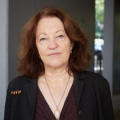
Stefanie Schüler-Springorum
Stefanie Schüler-Springorum, historian, 2001-2011 Director of the Institute for GermanJewish history in Hamburg; since 2011 Director of the Center for Research on Antisemitism, since 2012 Co- Director of the Selma-Stern-Center for Jewish Studies, both in in Berlin, and since 2020 Director of the Berlin branch of the Center for Research on Social Cohesion. Fields of research: Jewish, German and Spanish History, Gender History, Military History and History of Violence. Recent publications: German Jewish Gender History (forthcoming with Berghahn 2024, translation from the German book of 2014); Football and Discrimination. Antisemitism and beyond, London 2021 (ed. with P. Brunssen); Four Years After: Antisemitism and Racism in Trump’s America (ed. with N. and M. Zadoff, H. Paul), Munich 2020; Gender and the Politics of Anti-Semitism, in: American Historical Review 123 (2018), 1210-1222 orr., La Guerra como Aventura. La Legión Cóndor en la Guerra Civil Española 1936–1939, Madrid (Alianza) 2014.
Registration fees
The Early Bird general registration fee for speakers is 100€ until 29/04/2024 (50€ for students and unemployed), after which it will be 150€.
The Early Bird general fee for attendees not presenting a paper is 110€ until 29/04/2024 (40€ for students and unemployed), after which it will be 150€ (60€ for students and unemployed).
The enrollment/application platform as well as detailed information is available on the congress website (see QR or link at the end of the document).
| Registration | Until 29-04-2024 | Until 13-06-2024 |
|---|---|---|
| 100,00 EUR | 150,00 EUR | |
| 50,00 EUR | 150,00 EUR | |
| 110,00 EUR | 150,00 EUR | |
| 40,00 EUR | 60,00 EUR |
Venue
Elai-alai, Museo Euskal Herria, Museo de la Paz de Gernika and Casa de Juntas de Gernika
Bizkaia
Elai-alai, Museo Euskal Herria, Museo de la Paz de Gernika and Casa de Juntas de Gernika
Bizkaia


